
It is often assumed, and rightly so, that to get one's name on the Stanley Cup, one must have to work at it.
In some instances, certain players have had to work at it harder than others.
As traditions and requirements for eligibility have changed over the years, there have been some odd additions and omissions. It is not only players who can earn the honour, anyone associated with the team now has an opportunity for Stanley immortality.
Ken Dryden was drafted 14th overall by the Boston Bruins in the 1964 NHL Amateur Draft. Dryden had no interest at the time in attending the Bruins camp, preferring to attend Cornell University and tend goal for the Big Red. Dryden was subsequently traded to the Canadiens for Guy Allen and Paul Reid, neither of whom would play a single NHL game. As a player with the rival Cornell, Dryden often played in the Boston Garden, and was quite used to its rowdy atmosphere by the time he helped the Canadiens to the surprise 1971 Cup. Dryden would be named the Conn Smythe Trophy in '71, and win "Rookie of the Year" the following season.

It is well known that Dryden is the only player to have ever won the Conn Smythe Trophy as playoff MVP before winning the Calder. In similar fashion, Canadiens prospect Christian Bordeleau won a Stanley Cup with the team in 1969 as a 19 year old before winning the Memorial Cup the next season with the Montreal Junior Canadiens.
Chicago Blackhawks great, Tony Esposito started his career by getting his name on the Stanley Cup while serving as a third string goalie on a Montreal team that had Rogatien Vachon and Gump Worsley. Esposito played 13 games with 1969 Canadiens, including one very historic contest against his brother Phil's Boston Bruins that ended in a 0-0 draw. Much like Dryden, Esposito would also get his name on the Cup and go onto win the Calder Trophy in 1970, setting a modern day record with 15 shutouts in one season. In what became a Hall Of Fame career, Esposito reached the finals in 1971 and '73, but never did get to earn his name onto the Cup.
Former Norris Trophy winner Harry Howell enjoyed a lengthy 23 year professional career, mostly with the New York Rangers. When the defenseman retired in 1976, he left the game with the dubious honour as the player having played in the most games, 1141 in all, without having his name on the Cup. He was more fortunate as a scout, getting his name engraved amongst the 1989-90 Oilers championship team - in his first year on the job!
Steve Brule played one playoff game for the New Jersey Devils in 2000, getting his name on the Cup having played the least possible games. Three years later, Brule suited up for a pair of games with the Avalanche, who undoubtably signed him for his extensive Cup experience. Brule is still an active payer in the Austrian League with Graz EC.
Phil Housley, 12th in all time games played, is now the player having taken part in the most games, 1495, without getting a sniff of Stanley. Housley, played mainly with Buffalo and Winnipeg, before moving onto succession of 6 other teams. Mike Gartner, 1432 in 19 seasons, Norm Ullman, 1410 in 20 seasons, and Dale Hunter, with 1407 in 19 seasons, are next. Marcel Dionne, with 1771 points in 1348 games remains the games most prolific scorer not to have reached glory, however his younger brother Gilbert, who played a career total of 223 got lucky in 1993 with the Canadiens.
Ullman was particularly unfortunate, arriving just after the Detroit dynasty in 1955-56 and reaching the Leafs two years after their last win of thewir great 1960's run.
Incomprehensibly, goalie Ernie Wakely's name is in with the members of the 1964-65 champion Canadiens team. Wakely had played in just one game for the Habs - two years prior in 1962-63. He hadn't even set foot in the Forum in '65, playing with Omaha in the CPHL and Quebec and Cleveland of the AHL. Oddly, his name was added again in 1967-68, though he still hadn't played during that season. Wakely played one more game for the Canadiens in 1968-69, but this time there was no such luck with the mug. Wakely soon moved on to St.Louis where such screw ups were virtually impossible. He rounded out his career with a decade in the WHA.

On the 1983-84 engraving of the Edmonton Oilers, a name under owner Peter Pocklington appears this way, "XXXXX XXXXXXXXXXX". It is the X'd out name of Pocklington's father Basil, who had no direct correlation to the team. In the early 1990's, the Cup known as the Presentation Cup was sent to Montreal for repairs and returned missing the X'd name. An Islanders inscription had also been erroneously labelled "Ilanders" and the Cup was returned to be re-engraved with the Islanders name spelled correctly and the Pocklington X's added back on. The league directed this to preserve Stanley Cup lore. However, the Pocklington snafu is not found on what is known as the replica Cup, the one that sits at the HHOF and is used only when the Presentation Cup is on the road for various duties.
While the "Russian Rocket" Pavel Bure came close to winning the Stanley Cup in 1994 with the Canucks, the Bure name still found it's way onto the Stanley Cup. Inscribed among the names of the 2003 New jersey Devils, is one V. Bure. Vladimir Bure, father of Pavel and Valeri, was a fitness consultant with the team. The father was an Olympic swimming medalist in the 1968 and 1972 Olympics.
Scotty Bowman was born September 18, 1934. So why is his name in with the 1936-37 Detroit Red Wings champions when he was only three years old? The answer is simple, there are two "Scotty Bowman's". The first was a Winnipeg born defenseman who played with that years Wings team, named Ralph "Scotty" Bowman, and is inscribed on the Cup as simply "Scotty Bowman". The other, the legendary Canadiens and Red Wings coach, is named William Scott Bowman, but is best known as "Scotty". The coach who has won 9 Stanley Cups as a bench boss, named his son Stanley Glenn Bowman, after winning his first Cup in 1973. Stanley, of course was for the Cup, and Glenn was for Glenn Hall, the goaltender he admired most, and who who helped Bowman reach the Stanley Cup finals three years in a row with the St. Louis Blues.
Mike Ricci, who won with the Avalance in 1996, had friends over during the summer for a celebration day with the Cup.Among the guests were Ken and Cheryl Riley, who had been having trouble conceiving a child. During the party, Cheryl kissed the Cup and later in the day found out she was pregnant. When he was born, they named their son "Stanley C. Riley.




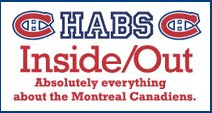





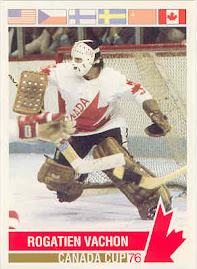
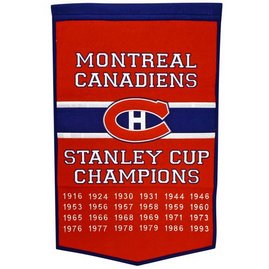







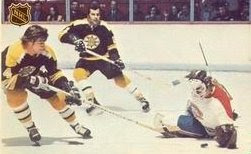



















































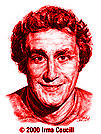

































































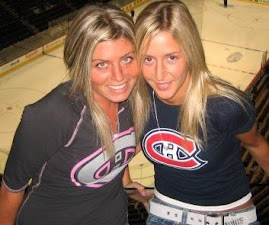
















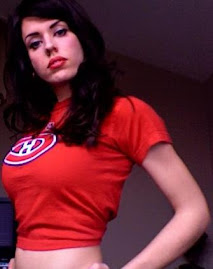

No comments:
Post a Comment